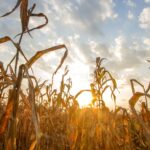
Can Your Diet Affect the Planet?
01/17/2019
A new report takes a look at how eating patterns can impact the environment. The report was published in The Lancet in conjunction with the EAT Forum, a non-profit advocacy group. The study suggests ways to balance a healthy diet with sustainable food systems.
The report notes that nearly 1 billion people in the world are going hungry and that about 2 billion people are consuming more calories than they need. In light of climate change and a growing world population, the report recommends some people change their diets.
The “planetary health diet” offers five strategies to encourage people to change their eating habits. These include governments giving incentives to eat healthier and intensifying agriculture sustainability. One of the recommendations is for those in North America and Europe to reduce meat and sugar consumption and to eat more fruits, vegetables and nuts.
When considering changes to your diet, Best Food Facts experts advise eating a balanced diet that includes fruits, vegetables, whole grains and high-quality proteins.
“Protein has several functions in the body including serving as structural components of muscle,” said Dr. Ruth MacDonald, chair of the Department of Food Science and Human Nutrition at Iowa State University, in an article for Best Food Facts. “High-quality protein sources are identified by nutrition scientists as those that contain all the essential amino acids in the amounts needed by humans. The highest quality proteins come from animal sources – eggs, meat and milk.”
Choose a variety of protein sources and consider the additional nutrients a food provides, suggested Dr. Liz Applegate, director of Sports Nutrition at the University of California-Davis.
“For meats like chicken, turkey, beef and pork, you’re getting a high-quality protein with the essential amino acids your body needs, but you also get the good absorbable trace minerals like iron and zinc, which some people don’t get enough of in their diet. Dairy sources are excellent because, along with protein, you get calcium, riboflavin and vitamin D,” she said. “Vegetarian sources of protein like tofu provide some really heart-healthy fats and some cancer-fighting compounds called isoflavones. Eggs top the list as the best source of protein because they have the profile of amino acids that exactly match our needs.”
While it is possible to meet nutrition needs without eating animal protein, it does require paying close attention to food labels and making sure you get all necessary nutrients, said Dr. Dennis Savaiano, professor in the Department of Nutrition Science at Purdue University.
When choosing foods that are sustainable for the planet, consider how the food is grown. Dr. Jude Capper is a Best Food Facts expert and independent livestock consultant who studies sustainability. She notes that livestock farmers have become more efficient and use fewer natural resources to raise animals.
“As the population grows and competes with agriculture for land, energy and water resources, the need to improve efficiency and productivity becomes ever more crucial. This can only be achieved by continuing specialization and intensification,” she said. For instance, chickens have been bred to reach market rate in a shorter amount of time. That means the chickens use fewer resources to grow.
Our experts have also shared tips for reducing food waste, which can benefit the environment.
The foods you choose can have an impact on the environment. Consider a number of factors that affect sustainability of food production and keep nutritional needs in mind.





























